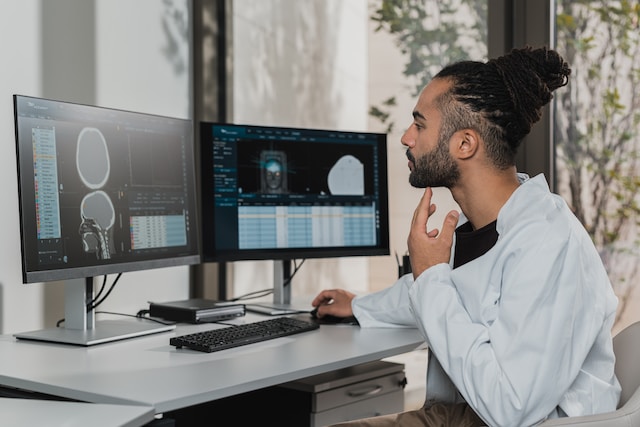Artificial Intelligence (AI) has tremendous potential in the field of medicine, particularly in the diagnosis of various medical conditions. With the help of AI systems, medical practitioners can analyze vast amounts of patient data and quickly arrive at accurate diagnoses, saving time and reducing the risk of errors.
IBM Watson for Oncology
There are several AI systems that can provide a diagnosis for specific medical problems. One such system is IBM Watson for Oncology, which uses natural language processing and machine learning algorithms to analyze patient data and provide personalized cancer treatment recommendations. The system reviews the patient’s medical history, pathology reports, and other relevant data to generate a list of treatment options tailored to the patient’s specific condition.
Google DeepMind’s for eye disease
Another AI system that provides a diagnosis for specific medical conditions is Google DeepMind’s AI-powered system for detecting eye disease. The system uses machine learning algorithms to analyze retinal scans and identify signs of diabetic retinopathy and age-related macular degeneration. The system has demonstrated high accuracy rates and has the potential to improve patient outcomes by enabling earlier detection and treatment of these conditions.
Chatbot Systems
Additionally, there are various AI-based chatbot systems that can provide a preliminary diagnosis for certain medical conditions. For example, the Ada Health app uses natural language processing and machine learning algorithms to ask patients questions about their symptoms and medical history and provide personalized health advice and recommendations. The system is designed to assist patients in determining whether they need to seek medical attention and what type of care they may require.
Conclusion
In conclusion, there are several AI systems available that can provide a diagnosis for specific medical conditions. These systems use machine learning algorithms to analyze patient data and provide personalized treatment recommendations, thereby improving patient outcomes and reducing the risk of errors. As AI technology continues to advance, we can expect to see more sophisticated and effective diagnostic tools emerge, further enhancing the capabilities of medical professionals in delivering quality healthcare.
Photo By Accuray
To read more, visit NGR





